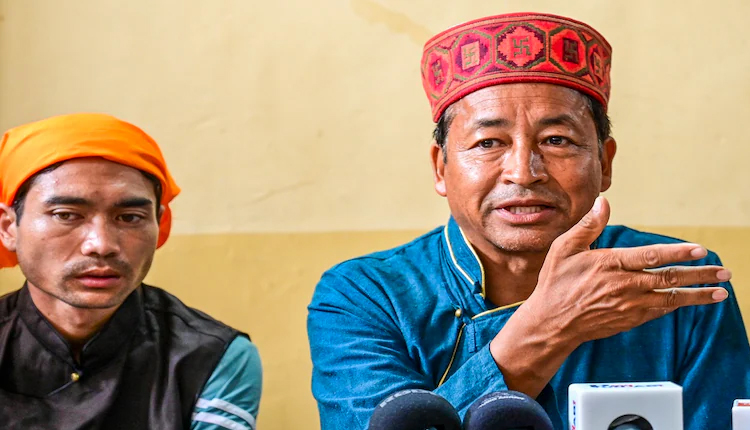New Delhi: Leader of Opposition in Lok Sabha, Rahul Gandhi, on Tuesday voiced strong criticism against the Delhi Police for the detention of prominent climate activist Sonam Wangchuk and his supporters at the Singhu border. Gandhi labelled the action as “unacceptable” and took aim at Prime Minister Narendra Modi, stating that the government’s treatment of peaceful demonstrators reflected an ongoing disregard for environmental and constitutional concerns.
“The detention of Sonam Wangchuk and hundreds of Ladakhis who peacefully marched for environmental and constitutional rights is unacceptable,” Gandhi remarked, holding Prime Minister Modi accountable for the police’s actions. In a further critique, he said, “Why are the elders, standing for Ladakh’s future, being stopped at Delhi’s borders? The voice of Ladakh must be heard.”
Sonam Wangchuk, a respected environmentalist, and his 150 supporters were reportedly detained by the Delhi Police late Monday night. In response, Wangchuk took to social media platform ‘X’ to share the news, stating that they had been peacefully marching towards Mahatma Gandhi’s samadhi when a heavy police force intervened.
“Me and my 150 colleagues have been detained at the Delhi border by hundreds, some say 1,000, police officers. These include many elderly men and women over the age of 80, and a few dozen army veterans. We don’t know what will happen next,” Wangchuk wrote.
Delhi Police later confirmed that Section 163 of the BNS Act had been enforced at the city’s borders, restricting the movement of the activists.
The group of marchers, including veterans and elderly citizens, began their foot march from Leh on 1st September, with the aim of urging the government to resume talks with Ladakh’s leadership. One of their key demands is the inclusion of Ladakh under the Sixth Schedule of the Constitution, which would grant locals greater autonomy to protect their land and cultural identity.
Wangchuk’s journey gained national attention after his nine-day fast in Leh earlier this year, which sought to raise awareness of Ladakh’s fragile ecology and the importance of safeguarding its indigenous communities. The abrogation of Article 370 in August 2019, which led to the bifurcation of Jammu and Kashmir into two Union Territories, including Ladakh, has sparked ongoing concerns over the region’s governance and environmental future.
As the march continues to attract widespread attention, both supporters and critics await the government’s response to the growing calls for Ladakh’s constitutional protection.



Comments are closed.